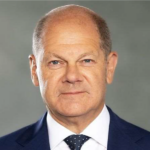In terms of performance, there have been improvements in some of the portfolio performance metrics since the 2022 Country Portfolio Performance Review (CPPR) Workshop. Specifically, the number of operations flagged for implementation challenges has decreased from 36 percent in January 2023 to 32 percent in September 2023. This improvement is a result of the collective efforts of the Federal Ministry of Finance, the executing agencies, and the Bank to reduce start-up and implementation delays.
The CPPR is an interactive session based on the principles of partnership and mutual accountability between the Bank, the Government, and, where appropriate, co-financiers.
Lamin Barrow, Director General for the Nigeria Country Department of the African Development Bank (AfDB), disclosed this on Friday in Abuja at a Joint Country Portfolio Performance Review (CPPR).
He said, “Indeed, the time taken to meet loan effectiveness and first disbursement conditions tends to be excessive. Let me acknowledge the recent unprecedented development with the FEC approval of the Ekiti Knowledge Zone project!”
Mr. Barrow commended the Federal Government for the ongoing economic reforms, especially the removal of fuel subsidies and the unification of the foreign exchange market, stating that these actions will enhance higher economic growth, despite the short-term difficulties that people are experiencing.
“I would, therefore, like to take this opportunity to commend the Federal Government of Nigeria for the bold reforms initiated to address macro-economic imbalances and structural issues in the economy. These reforms, particularly the removal of fuel subsidies and the unification of the exchange rate management system, will help reignite a higher economic growth trajectory, despite the short-term challenges faced by the population.
“This renewed drive for results and impact is clearly noticeable in the Bank’s interactions with the Federal Ministry of Finance, and specifically the International Economic Relations Department,” Mr. Barrow stated.
He further stated that, “Since the outbreak of the COVID-19 pandemic, annual disbursements have gradually increased from UA 93 million in 2021 to UA 143 million in 2022 and are projected to reach UA 165 million by the end of December 2023. Fiduciary compliance has also improved, with progress observed in the submission rate of audited financial statements by the Executing/Implementing Agencies for Financial Years 2021 and 2022. However, we can improve on timeliness.”
In his remarks, the Director of the International Economic Relations Department (IERD) at the Federal Ministry of Finance, Budget, and National Planning, Stanley N. George, called on those responsible for implementing various projects to adhere to timelines and avoid unnecessary delays, ensuring that Nigerians can maximize the benefits. He reminded them of the need to ensure compliance with established standards, keeping in mind that future generations will be responsible for repaying the loans.
WATCH TOP VIDEOS FROM NIGERIAN TRIBUNE TV
- Let’s Talk About SELF-AWARENESS
- Is Your Confidence Mistaken for Pride? Let’s talk about it
- Is Etiquette About Perfection…Or Just Not Being Rude?
- Top Psychologist Reveal 3 Signs You’re Struggling With Imposter Syndrome
- Do You Pick Up Work-Related Calls at Midnight or Never? Let’s Talk About Boundaries






